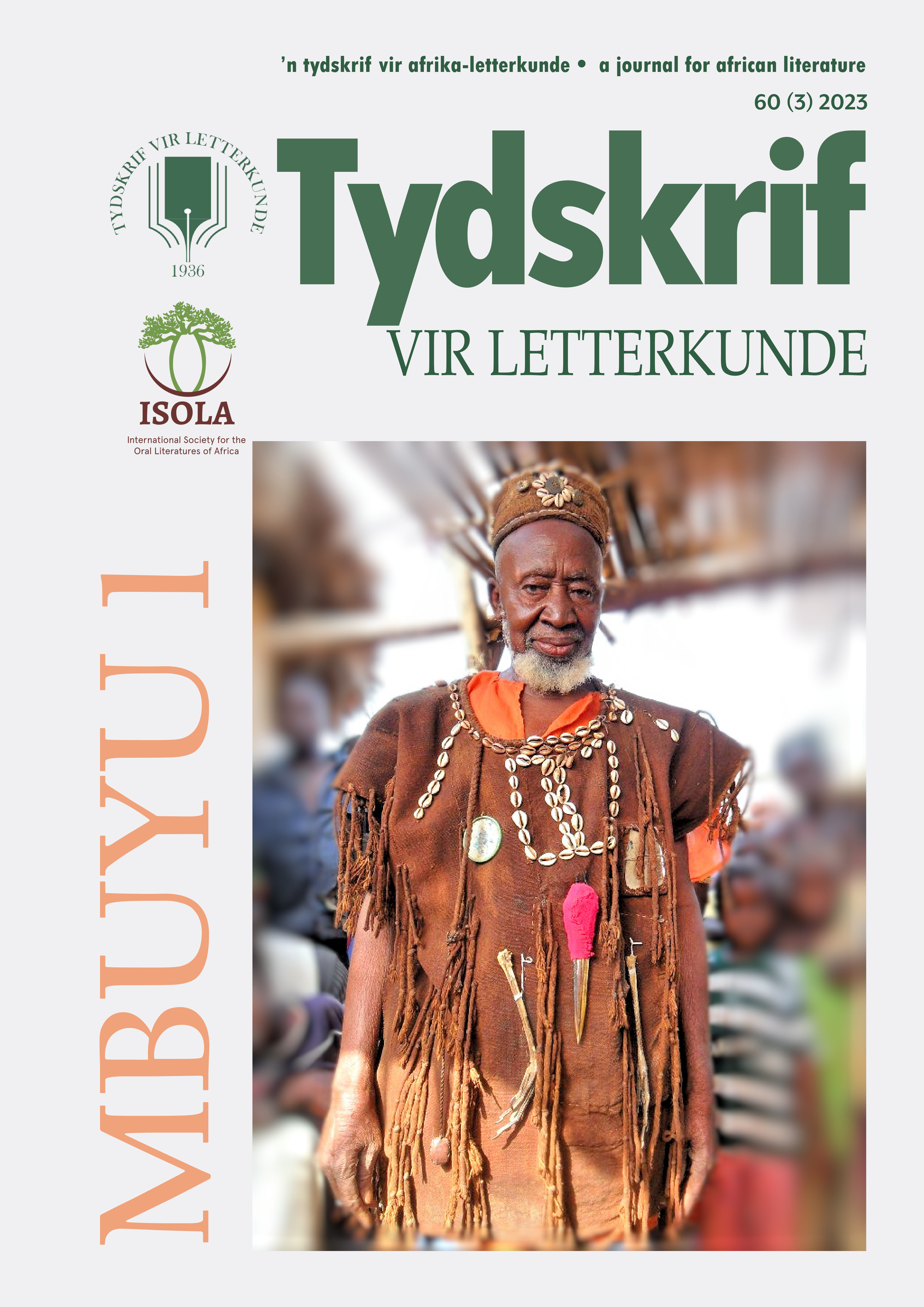La performance orale comme substitut au rituel : Ekutet, une cérémonie d’exhumation Teso
DOI :
https://doi.org/10.17159/tl.v60i3.14538Mots-clés :
Ekutet, rituel, mémoire, narration, reconstitution, émotions, déplacement, remplacement, représentationRésumé
Chez les Teso de l’ouest du Kenya, l’Ekutet (cérémonie d’exhumation) est pratiquée depuis des siècles pour traiter les problèmes physiques, mentaux et/ou émotionnels. Les malheurs persistants d’une famille ou d’une communauté, tels que les décès fréquents, les maladies, les accidents, les querelles inexpliquées et autres événements douloureux, peuvent être attribués à un membre malheureux de la famille ou de la communauté. Pour remédier à la situation et ramener la vie à la normale, les ossements du défunt sont exhumés, soit pour être réinhumés, soit pour être exposés dans un lieu sacré. Le rituel est notamment accompagné de représentations orales, sous forme de narrations, d’incantations, de serments, de chants de prières et de reconstitutions occasionnelles d’anecdotes dramatiques. Cet article a pour toile de fond la prise de conscience que le rituel de l’Ekutet lui-même semble diminuer, ce qui soulève une question pertinente : Qu’est-ce qui remplace, ou a remplacé, le rôle que ce rituel hautement psychologique a habituellement joué dans la vie du peuple Teso ? J’ai interrogé des membres de la communauté, tout en analysant les performances orales incorporées dans cet effort socioculturel et spirituel. Étant donné que le rituel proprement dit est devenu assez rare, les gens essaient apparemment de le maintenir en vie en cherchant dans la mémoire du rituel, ce qu’ils font par le biais de reconstitutions et de simulacres d’exhumation. Cela attire également l’attention sur le rôle de la mémoire, de la narration et de la reconstitution dans la réanimation ou la reviviscence de pratiques rituelles en perte de vitesse.
Téléchargements
Références
Adeng’oi, Anthony & Joseph Muleka. Interview conducted on 28 Oct. 2021 at Okame village, Teso South, Kenya.
De Waal Malefijt, Annemarie. Religion and Culture: An Introduction to Anthropology of Religion. Waveland, 1989.
Dubost, Thierry. “Soyinka’s The Strong Breed as a Tragedy of Hope.” Commonwealth Essays and Studies vol. 30, no. 2, 2008, pp. 22–34. DOI: https://doi.org/10.4000/ces.9132. DOI: https://doi.org/10.4000/ces.9132
Haney, William S. II. “Soyinka’s Ritual Drama: Unity, Postmodernism and the Mistake of the Intellect.” Research in African Literatures vol. 21, no. 4, 1990, pp. 33–44. https://www.jstor.org/stable/3819320.
Haviland, William A, et al. Anthropology: The Human Challenge 15th edition. Cengage Learning, 2016.
Ogola, Charles Mwalimu & Joseph Muleka. Interview conducted on 1 Nov. 2021 at Kaliwa school, Teso South, Kenya.
Samovar, Larry A., et al. Communication Between Cultures. 6th Edition. Thomson Higher Education, 2007.
Téléchargements
Publiée
Numéro
Rubrique
Licence
(c) Copyright Tydskrif vir Letterkunde 2023

Ce travail est disponible sous licence Creative Commons Attribution - Partage dans les Mêmes Conditions 4.0 International.


 https://orcid.org/0000-0001-6465-6584
https://orcid.org/0000-0001-6465-6584


.png)